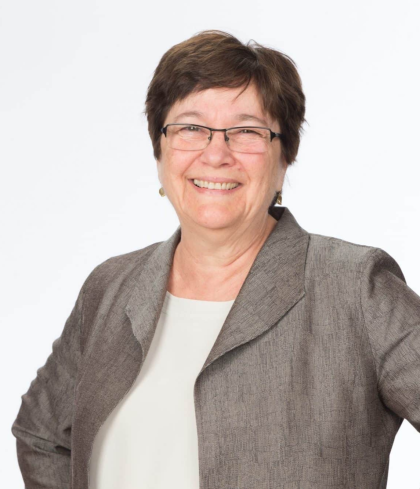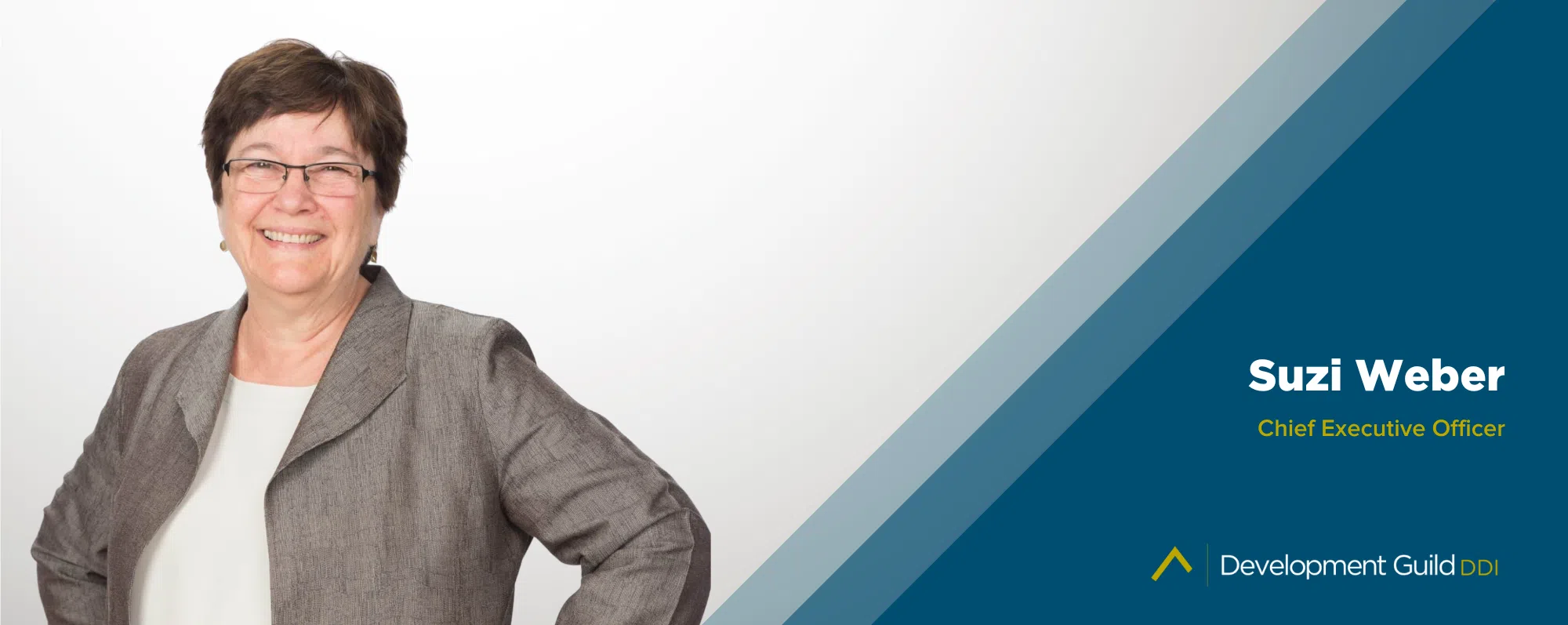Suzi Weber, MBA, co-founded Development Guild DDI over 45 years ago with her husband, Bill Weber Ed.D. Here, she chats about the company’s earliest days, what it means for a nonprofit to be “mission-driven,” future plans, and more.
What was it like starting a new business with your husband while balancing school and two young kids?

Suzi Weber, MBA, CEO of Development Guild
When we started Development Guild, we had two little children and I was going to graduate school. It was really blisteringly hard. And I think we only succeeded because Bill was just really extraordinary at being allowed in to understand what organizations needed.
And it was also extremely interesting. I was studying, finance and H.R. and trying to apply it to my life-experiment of this family business. It ended up being the perfect time for graduate school in that sense.
How did you end up working exclusively with nonprofits?
Bill and I had both been teachers out of college, and so it was natural for us to gravitate towards lots organizations with educational missions in the beginning.
And our clients immediately reflected what we wanted. They were nonprofits, government agencies, foundations, schools, and social service organizations. So we made an early decision: nonprofits are different.
In those early years, nonprofits were living on annual budgets, and if they had a shortfall, some donor would step up and write a check. It wasn’t as bad as that all the time, but it was that bad more than it should have been. We thought it ought to be strategic. There ought to be a longer-term plan. Trying to address that is how we started doing strategic planning.
What is Development Guild’s ‘secret sauce’?
We look for the kinds of relationships where we can be trusted to come in deeply on issues that matter a lot. I would say that everyone at Development Guild shares a deep sense of satisfaction at being able to earn trust, deserve trust, and bring expertise to leadership to make changes that matter to them. It is riveting to be a person that is allowed in to help an organization and succeed in helping them.
The pace of change in the nonprofit world has also been quite dramatic, and it is accelerating. It’s not slowing down. Just think about the technological changes. The ability to have leadership that sees the mission value of deep funding, deep planning is critical now. If a nonprofit lacks that vision for how to invest in the future and the quality of the organization’s work, they won’t be able to make the kinds of investments in their staff and in how they’re going to experiment in advance.
Tell me about one of your longest partnerships, Pine Street Inn.
Pine Street Inn began in 1969. There was a tremendous increase in homelessness, and Pine Street Inn was the extraordinary nonprofit in Boston who was taking it on.
When we met them, they had amazing leadership. I’ve never actually seen an organization build a deeper leadership agreement. And they had built a glorious volunteer program.
When we met them, they had put all these extremely valuable pieces in place, but they didn’t have a sophisticated fundraising program. So, we helped them build a strategy to bring in large gifts and specifically how to raise the money for their first campaign.
The city came through, the state came through. They raised significant funds to create housing solutions in Boston. And they keep traveling down that road, asking questions that get at the heart of the housing problem in Boston. How do we minimize the need for shelter? How do we prevent the need for shelter? How do we get people housed?
Now Boston has one of the highest housing rates for the homeless of cities in the country. It wasn’t just Pine Street by any means, but they had a powerful part in working with those leaders across the city that wanted to make this change.
We’ve worked with them constantly all these years. It’s been a round robin of searches and planning and fundraising.
I learned more from Pine Street than I did from any other career opportunity I’ve had. They really moved me.
What’s next for Development Guild?
We’ve developed a new AI tool for nonprofit strategic planning called DevGuild. It takes a huge amount of man hours for nonprofits to identify the common vision, to examine the environment and to turn it into a realistic strategic plan. It’s hugely important.
Strategic planning needs to engage the key stakeholders of an organization. With DevGuild, you can do this much faster and with larger groups. You’re not limited to the people that you can put in a room. You could invite all the staff. You could invite all the scientists. You could invite all the donors.
DevGuild, unlike other AIs like ChatGPT, is entirely based on the thinking of the participants–it does not pull from an unknown source. That artificial intelligence part is really taking the ideas from multiple individuals and sorting them in ways that create a coherent plan.
When we used it in-house, those first experiments, I was so anxious. What happens if it’s a plan that I hate? That is unachievable? You know, what if it’s a plan that I don’t want?
What I learned was that the quality of the plans were better than the quality of any plan we had been discussing before using DevGuild. And if there was anything in the plan that was unachievable, that’s as it should be, because that helped us identify who do we need to hire, what investment do we need to make, how many years do we think this will take? It allowed us to be more ambitious and to lay out the steps. I built my own confidence over time. And I think that will be the same for clients.


